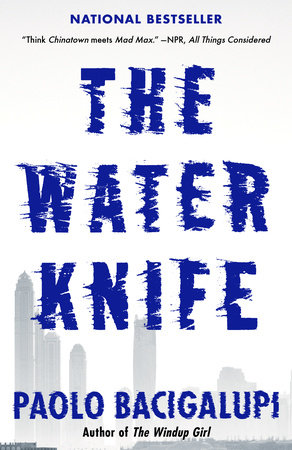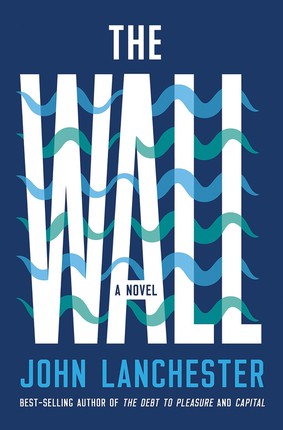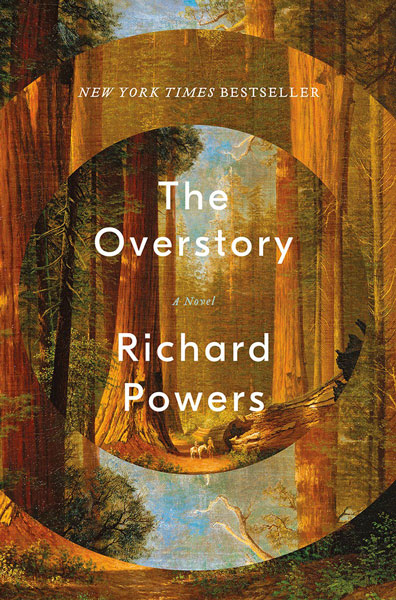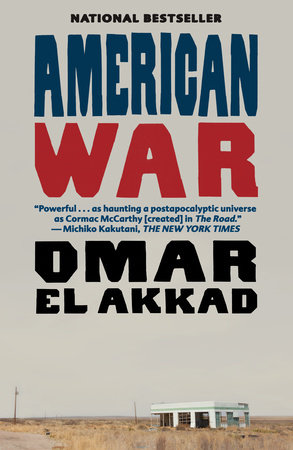Reading Lists
All the Presidential Candidates Need to Read These Books About Climate Disaster
Fiction that can motivate policymakers—and voters—by making the disastrous future feel present and real

There’s a strong need to build climate empathy. Hundreds of media organizations worldwide have banded together through the Covering Climate Now project. Millions of people, led by youth activists, are marching in the streets demanding action. Yet some people, including many politicians, still don’t seem convinced we’re in the middle of an emergency. Maybe it’s because they don’t recognize themselves in the crisis. Maybe it’s because they don’t want to. The books I’m recommending invite us inside the lives of people already fighting for water rights, riding out extreme weather events, and trying to survive in future landscapes. Sometimes fiction can convey truth more effectively than facts can. Yes, we desperately need the facts, the science, and a healthy dose of fear. But we also need an infusion of empathy and belief if we’re going to motivate people to act.
The Water Knife by Paolo Bacigalupi
By the end of the first chapter, you will be thirsty. Let the thirst sink in as you enter a future where the American Southwest has dried up, and people routinely drink their own filtered urine to avoid wasting water. Racism and anti-immigrant sentiments are on full display in The Water Knife. Economic inequality manifests in compounds that rise up with lush green vegetation and abundant water—but only if you can buy your way in. Characters jostle for control of water rights along the Colorado River and a mysterious ancient deed could change everything. As the mystery of the deed unfolds, and characters battle over water, we are reminded they are doing so on stolen land. Feeling uncomfortable yet? Good. Sit with the discomfort and ask who in this country, on this planet, is experiencing this reality.
Gun Island by Amitav Ghosh
Deen, a rare book and antique dealer, is beguiled by an old Bengali myth that seems to be reasserting itself in the present. As he follows the legend into the ecologically precarious Sundarbans in India, Deen is pulled into a world of climate refugees, human trafficking, changing landscapes, and unsettled nature. Animal habitats shift, oceans warm, and wildfires rage. Close your eyes and allow yourselves to imagine the unstable mud of the Sundarbans between your toes. When you open your eyes, you might notice the ground beneath your own feet is shifting as well.
The Wall by John Lanchester
Well, we finally did it. We built the wall. But not the one you might be thinking of. In Lanchester’s near-future novel, the United States has constructed a wall along its coastal borders to keep out boats full of desperate climate refugees known merely as “others.” Lanchester does not tell us the nature of the climate catastrophe that altered the world, but the blame lands squarely on the shoulders of the generations who refused to step up when they still had the chance to contain the climate crisis. The Wall not-so-subtly indicts us all.
The Water Cure by Sophie Mackintosh
The Water Cure is a deep dive into a dreamlike stew of environmental anxiety mixed with toxic masculinity. Mackintosh invites us into a tension-filled household masquerading as an island utopia. The main characters – a mother and her three young daughters – have been taught to fear everything: the outside world, environmental toxins, and, most of all, men. The Water Cure connects toxic masculinity and ecological contamination in ways the reader and the characters don’t fully understand through much of the book. This book might leave you anxious and angry about the lies we have been fed. Stay angry. We need you to be angry and acknowledge hope.
The Lost Book of Adana Moreau by Michael Zapata
This sweeping debut novel publishes next year and centers a mysterious unpublished manuscript written just after the Great Depression by Adana Moreau, a prescient science fiction writer from the Dominican Republic who immigrated to the United States at age sixteen. Generations later, a man named Saul discovers the manuscript and embarks on a mission to return it to Adana’s son Maxwell, now a prominent theoretical physicist. Accompanied by Javier, a natural-disaster-obsessed journalist, Saul goes to New Orleans in search of Maxwell shortly after Hurricane Katrina hits. With references to other disasters in the U.S., Ecuador, Argentina, and Chile, Zapata will leave you pondering the damage humans inflict on each other after the water recedes. What is our role as observers in the never-ending stream of crises? As Javier notes: “The whole fucking media is addicted to disaster and the money that comes pouring in during one.” Who profits off the damage inflicted by climate disasters? Who benefits from the chaos? How can we do better?
Trail of Lightning by Rebecca Roanhorse
This urban fantasy is set on the Navajo reservation of Dinétah in a future after the climate crisis has drastically altered our world. When monsters from Navajo legend rise up from this new landscape, people look to a young woman to stand up against the evil. As our young heroine confronts the beasts elders cower from, you may find yourself thinking of real-world teens, like Autumn Peltier, who are assuming the roles of climate protectors.
The Overstory by Richard Powers
This book aches for the forests we are losing. As a reader, you will experience life in a self-contained ecosystem that exists only in the canopy of a redwood forest. You will fall from a plane and be rescued by a tree that emerges from the ground just in time to catch you. The Overstory leaves readers with a sense of awe for the wisdom that exists in a centuries-old forest, and in a single resilient tree. Through his broad and diverse cast of characters, Powers will push you to acknowledge the loss of biodiversity and planetary health as the world’s trees fall to timber operations, agriculture, development, and wildfires. The Overstory will challenge you to recognize forests not as objects or locations, but as sentient repositories of history, time, and knowledge.
American War by Omar El Akkad
American War reads like U.S. history that just hasn’t happened yet. In this near-future setting, most of the United States has banned the use of fossil fuels, but the South clings to oil, triggering a second civil war. Florida has all but disappeared into the ocean, and New Orleans only survives in history books. Sarat, the main character, grows up in a refugee camp in the Free Southern States, where resources are scarce. She transforms herself into a calculating warrior, but even she questions what is right and who to trust in the unstable political climate. American War shows us a vision of our country divided against itself as climate change eats away our shores and our national identity. The good news is that we haven’t hit this tipping point yet. We can still break our addiction to fossil fuels if politicians and industry leaders choose to be brave.
South Pole Station by Ashley Shelby
South Pole Station follows Cooper, an artist serving a residency at the South Pole, where a fun and sometimes prickly cast of characters live together in a claustrophobic research setting. When a climate-denialist shows up to conduct research intended to disprove generally accepted climate science, the other residents resent the resources being allocated to pseudoscience. As a non-scientist, Cooper serves as an observer in the world of climate research and allows the reader to question whether it is unfair to limit scientific inquiry. Shelby lifts the curtain on how private interests often fund climate-denial research, leaving the reader with a deep respect for the scientists who dedicate their lives to real climate work.
Salvage the Bones by Jesymn Ward
Salvage the Bones depicts a poor, Black family in Mississippi dealing with loss, longing, and uncertainty as Hurricane Katrina approaches. Ward organizes the chapters as a twelve-day countdown to Katrina’s landfall. Wealthy white landowners board up their properties and evacuate as Katrina edges closer. Meanwhile, Ward’s characters are left to scavenge for scrap wood to secure their windows as they prepare to ride out the storm. Vast swaths of our country are vulnerable to climate-related disasters, but communities of color are usually the ones hit first and worst. The ticking clock Ward establishes is a warning to all of us. The next storm, fueled by warming oceans, is coming.


















